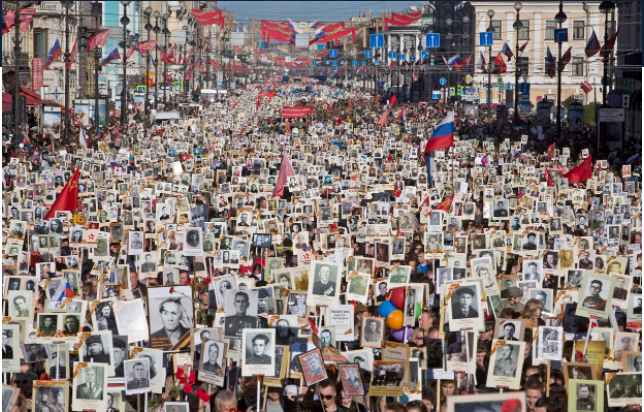

By John Helmer, Moscow
@bears_with
When the US-led putsch in Kiev started the Ukrainian civil war in 2014, most Russians have believed the risk of war with the US and NATO was small. In the past two years, however, there has been a significant change in Russian thinking.
Asked to say if an armed conflict with the US and NATO is “possible” this year, one in four (25%) Russians across the country, interviewed in their homes by the Levada Centre between December 16 and 22, said yes. This is a jump from 14% in 2020, and from 10% in 2017, the low point in this series of polls Levada has been conducting since 2015.
The new poll was released on Monday and has not yet been published in English. Three days earlier, however, Levada released the responses of its nationwide sample to the question asked in the same interview — what are the major fears Russians have for the future. World war was ranked second after fear for the illness of family members; it came well ahead of Russians’ fear of abuse of power and political repression, poverty, robbery, loss of savings, unemployment or growing old. Fear of illness in the family is now acknowledged by 82%; fear of world war by 56%. The Russian apprehension of war has almost doubled since 2003.
These are not phantom fears stoked by the mass media. Russians don’t believe what they read in the Russian or foreign press. In Russian thinking, the media are as untrustworthy as banks, businessmen, government officials, and political parties. In this distrust and disbelief, Russians lead all Europeans; their disbelief in the press is also greater than the comparable American measure, plummeting though that has been since the 2016 presidential election.
IS ARMED CONFLICT WITH THE US AND NATO POSSIBLE THIS YEAR?
(percent)
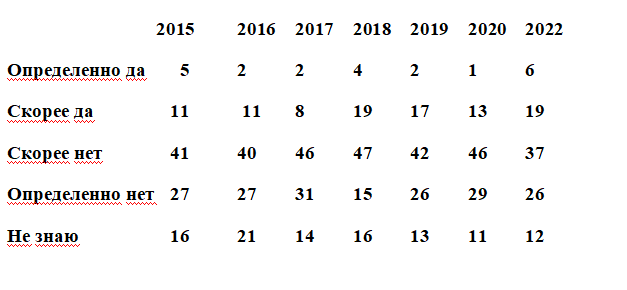
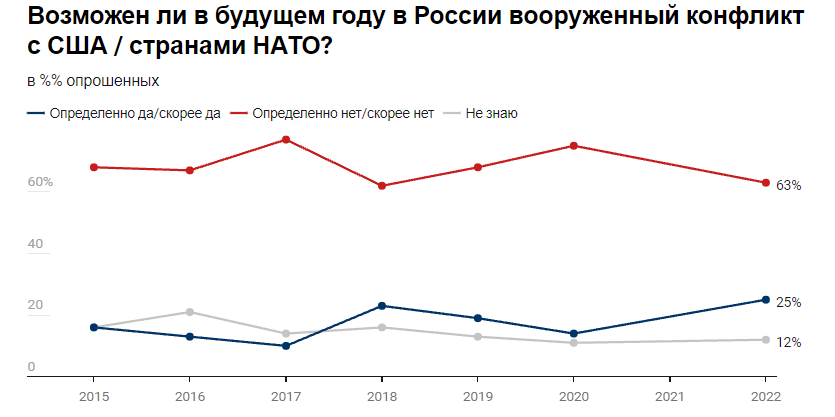
KEY: red=no (not possible); blue=yes (possible); grey=don’t know. Source: https://www.levada.ru/
The nationwide sample was 1,640. The sampling error was measured at 2.9%-3.4%.
The number of Russians who have told the pollster they were optimistic on risk of direct war with the US – that’s the red line in the chart — has varied from 68% in 2015 to peaks of 77% in 2016 and 75% in 2020. In the past two years, however, apprehension has been growing and the blue line has risen. In the latest poll by the Levada Centre of Moscow, 25% said direct war is possible. This percentage has not been higher since the end of the Soviet Union.
In the same survey, Levada asked their sample to identify what they are most afraid of. This is how Russians rank the fears at present:
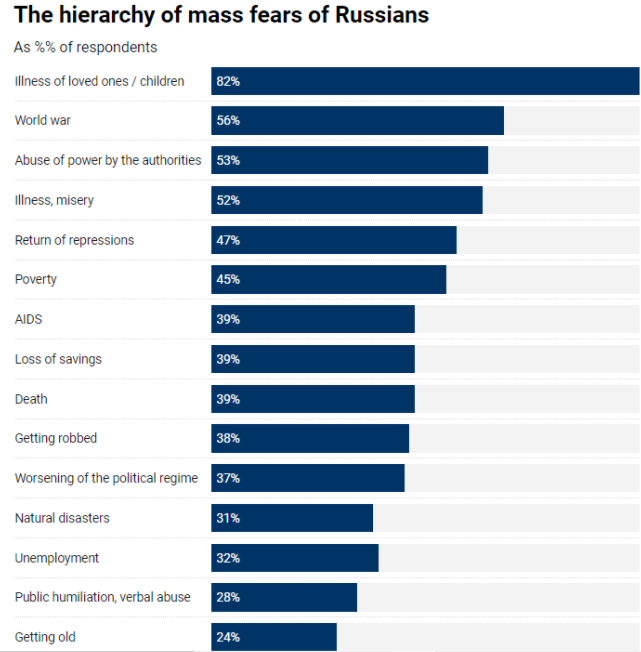
Source: https://www.levada.ru
Levada has been asking the same question in polling since 1994. The peak years when the fear of world war were highest were 1994, following President Boris Yeltsin’s destruction of parliament, imposition of a new constitution, and the start of the war in Chechnya; and then the years since 2014, when the armed conflict in Ukraine began.
FEAR OF WORLD WAR IN RUSSIAN PUBLIC OPINION
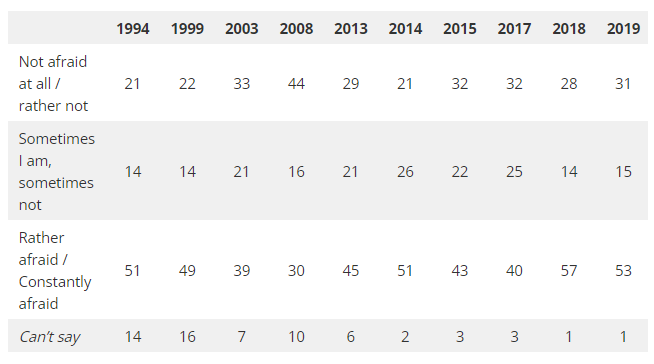
Source: https://www.levada.ru/
World war is not an abstract schoolbook idea; the suffering and loss it caused remain direct, personal, immediate in almost every Russian family. The annual public processions of the Immortal Regiment (lead image, St. Petersburg), in memory of family members participating, injured or killed in World War II, have now reached over 10 million, while the television or online audience is double that number.
Americans have been asked a similar question about their fears in the annual Chapman University Survey. They acknowledge similar fears as Russians, and they share the apprehension of serious illness striking their families. For other fears, Americans express a very different order from Russians. On the top of American fears is the corruption of domestic government officials; civil unrest and financial collapse come close together but well behind that.
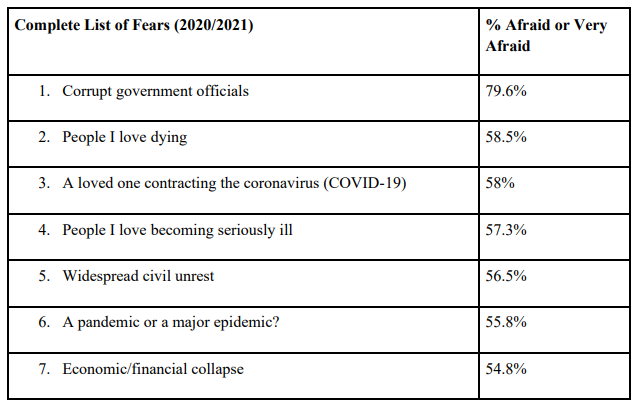
Source: https://www.chapman.edu/
Fear on the part of Americans that they may become involved in world war is expressed by 48.3%. This ranks fifteenth on the fear table for 2020-21, trailing after fear of government gun controls, global warming, and running out of money.
Chapman University has been publishing an American fear survey since 2016. The fear of world war has been edging up; it was reported to be 51.6% in 2018, 52% in 2019. Over 2020-21, it has come down to 48.3%. Fear of nuclear attack on the US has been registered from Iran, North Korea, and terrorists, but not from Russia. Read the survey reports here.











Leave a Reply